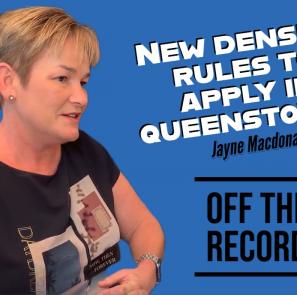Stay up to date with our latest News, Views & Resources by subscribing to our newsletter. We promise to provide you with quality content & the latest industry news.
Alternative methods to sell your property
Auction and tender guide for sellers
We are starting to see more upward movement in the property market which is positive news for property sellers.
A more buoyant market means that sellers and their real estate agents will be looking at alternative ways to secure a buyer. Rather than sticking to traditional sales methods – advertised price, deadline sale or by negotiation – sellers may want to consider a closed tender or auction process.
Closed tender
The closed tender process is similar to a deadline sale. Your real estate agent will prepare the tender document for prospective buyers. Buyers must submit their offer by the date and time you specify. Under a closed tender, neither you nor the agent can look at any of the tender offers before the closing date.
You can place conditions in the tender document before it is provided to prospective buyers, for example making the agreement conditional on you purchasing another property. Tenders may also contain buyer conditions. The highest price offer isn’t always the driving factor. For example, you may get a ‘cleaner’ offer (with no or few conditions) but at a lower price. Typically, you will have a short period of time after the closing date to consider all of the tenders received and decide which you want to accept.
A tender process gives a sense of urgency with a fixed date and, in contrast with auctions, buyers and sellers have more flexibility, for example, by adding conditions. It is, however, less transparent than an auction as prospective buyers have no idea of what price other bidders are offering.
Auction
A property auction is, of course, quite different from a tender process. Once a prospective buyer is interested in bidding for the property, the real estate agent will hand over all of the information on the property, and the buyer must complete any due diligence they may have on the possible purchase before the auction date.
On auction day, prospective buyers bid until there is a last-bidder-standing and the auction price has reached or passed the reserve (the minimum offer you will accept).If you have a successful buyer at the auction, then you have an unconditional agreement for the sale of your property.
It is important to note that if you want to bid on your own property at the auction (known as a ‘vendor’s bid’) there are strict rules around this, so talk to the auctioneer before the auction.
For first home buyers, it can be challenging to buy a property at auction because they will generally have lower equity and need to provide more information to a lender and may, for example, need a building report or valuation. They may also need to pay the deposit from their KiwiSaver funds.
Similarities between methods of sale
Whatever the method you choose to sell your property, there are some standard provisions in the Agreement for Sale and Purchase that a potential buyer will expect to see.
Unless the property is tenanted, the buyer is entitled to undertake a pre-settlement inspection prior to settlement and, if the property isn’t in the same condition as when the agreement or tender was signed, or when the auction is held, then the buyer can ask you to remedy any issues.
The standard vendor warranties are undertakings that you provide to the buyer about various things. These include:
- Whether you are aware of any potential claims relating to the property, such as breaching a resource consent, not complying with your obligations as a landlord, or disputes about shared driveways or boundary fences.
- Whether you have provided your neighbours with consents for them to subdivide or build on their property. This will be of particular interest to a buyer if it is going to impact on the character or enjoyment of the home.
- Confirmation that the chattels included in the sale are in reasonable working condition. During the pre-settlement inspection, a buyer may identify a chattel that is not working, and may request this is remedied before settlement. If, however, this isn’t picked up at the pre-settlement inspection, a buyer could seek to enforce the warranty after settlement.
- Confirmation that any work you have completed to the property that required a building consent or a resource consent has the appropriate consent and code of compliance certificates.
If you cannot make these warranties, you can, and should, remove them if appropriate. However, this can be a red flag for buyers to ask further questions. If you know of any issues with the home or a particular chattel, it is important to disclose these early to avoid having to compensate the buyer under any of these warranties.
Downsides
If your property does not sell at auction, you will still incur costs for the auction. You may also incur costs from your real estate agent or lawyer depending on the listing arrangements and amount of work involved.
Although there are positive signs the property market is recovering, it is still a tough market. If you are considering selling your property, it could be worthwhile exploring all options to market and sell your property.

- Rent reviews in commercial leases: Methods of review
- Vendor supplied reports/disclosures: Can you rely on them?
- Property briefs: Proposed reform to the overseas Investment Act 2005 - Granny flat legislation just passed - No further restrictions on sunset clauses in agreements - Changes to earthquake-prone buildings assessment
The New Zealand property market can be challenging, especially for those buying in Central Otago, and we are seeing a steady rise in keen buyers exploring creative paths to climb...
Read More
On 4 July 2024, the Coalition Government introduced its plan to fix our housing crisis consisting of five interlocking actions.
Read More
Relationships can be complicated waters to navigate at the best of times, but it can become even trickier when thought needs to be given to relationship property matters.
Read More
Lending money to your children to buy their first home can be a generous and life-changing move, but it’s essential to consider the legal implications before proceeding.
Read More
The Trust Act 2019 outlines the obligations of trustees, and when taking on a trusteeship an individual or company must be aware of the risks involved.
Read More





https://www.youtube.com/watch?v=Ml7nmEmtvSY
Read More
Trusts Act 2019 also affects executors and administrators of wills
Read More
Creditor compromise regime: Another option in insolvency Guest editorial: The economy - tougher times ahead? Love, heartbreak and...death? Make a new will and EPA's when you separate New Incorporated...
Read More
https://www.youtube.com/watch?v=lZ6pC9agrrs
Read More

Senior Associate Scott Donaldson and Senior Solicitor Alice Milne have released episode 3 of their podcast, Off the Record.
Read More
Senior Associate Scott Donaldson and Senior Solicitor Alice Milne have released episode two of their podcast, Off the Record.
Read More
Duncan Anderson, Associate, Mactodd Lawyers, Queenstown
Read More
Senior Associate Scott Donaldson and Senior Solicitor Alice Milne have started a new video podcast where they address issues in law affecting Queenstown businesses.
Read More
Mental health in the workplace Co-ownership arrangements Checking your home is accurately insured Helping your family before you pass away Notifications of privacy breaches increase significantly Post script
Read More


Mann v Paterson Constructions Pty Ltd—Builders' Quantum Meruits Revisited' (2021) 37 Construction Law Journal 207 discusses recent changes to the law in Australia regarding restitutionary claims able to be made...
Read More
Buying off the plans New edition of To Trust or Not to Trust Climate Action Toolbox Post-Covid working world An independent trustee Postscript
Read More

Investment in Farming - A focus on syndicated farm investments The finite supply of water - Water easements Over the Fence - Crown Pastoral Land Reform Bill (submissions open),...
Read More


The government’s Budget, presented by the Minister of Finance the Hon Grant Robertson on 14 May has addressed, in the words of the Minister, “a 1-in-100 year health and economic...
Read More
These helpful checklists will guide you thought some of the most important areas you and your lawyer need to address when purchasing or selling a residential property and also when moving.
Read More
Also includes comprehensive checklists to you don't miss out any important step as well as details on how to protect your assets and when you also need to consider a...
Read More
Not all investments in NZ require consent from the Overseas Investment Office (“OIO”) but like many countries NZ has controls on overseas investment. Certain land is subject to OIO consent.
Read More
This practical guide designed to steer you through the essentials of Family Trusts including: Is a family trust for you? Protection given by a Family Trust. Planning for your life. Duties of trustees and how to run a trust. Costs.
Read More
Our local knowledge, experience and expertise will provide you with the support and advice you need for a successful property purchase, regardless of the size or complexity of the transaction.
Read More
We have produced a practical guide on buying a home or an investment property in New Zealand in Mandarin.
Read More
You’re catapulted into thinking about organising a funeral, whether it will be a cremation or burial and how to organise the day, and then you also need to think about...
Read More

